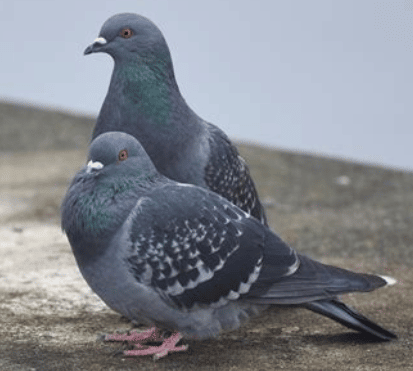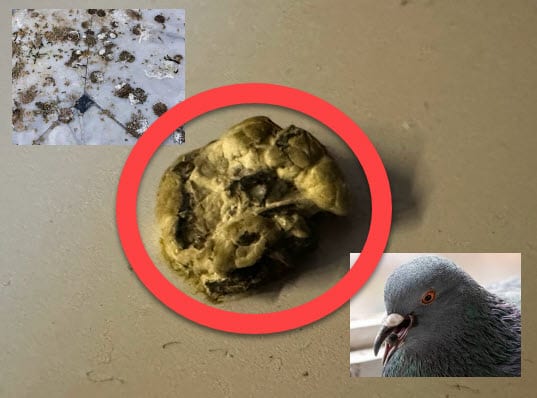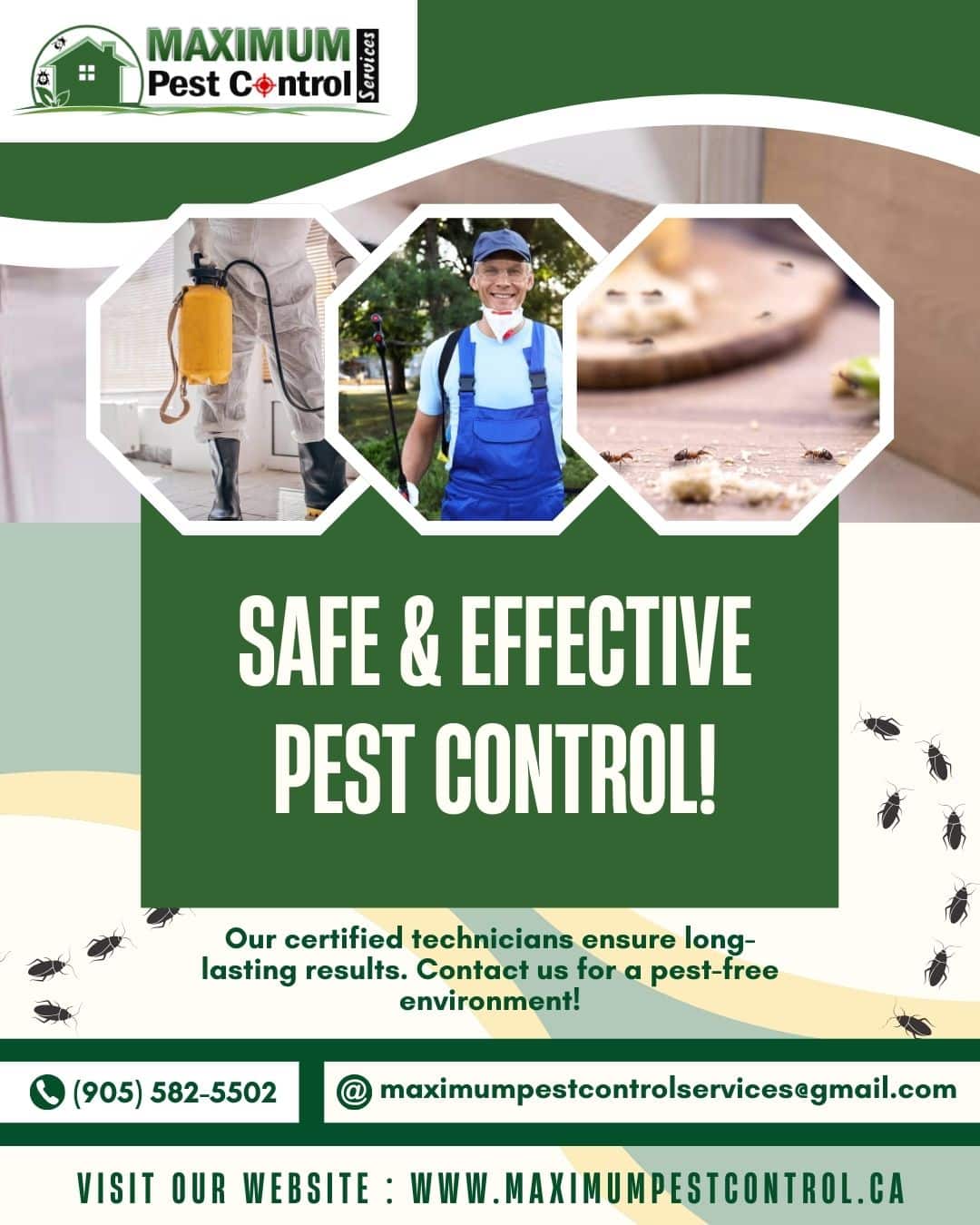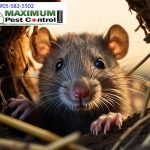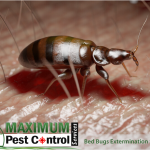
The Hidden Risks of Pigeon Guano: What You Need to Know
The Hidden Risks of Pigeon Guano: Ever walked under a bridge and felt something splat on your head? Chances are, you’ve had a run-in with pigeon poop. But it’s not just a messy nuisance. Pigeon bird guano can be seriously dangerous stuff.
These droppings carry nasty diseases and can damage buildings too. Left unchecked, they’re a health hazard waiting to happen. But don’t panic – with the right know-how, you can tackle this problem safely, Thanks to Maximum pest control services sharing these info with the public.
Want to learn how to protect yourself and your property from pesky pigeon poop or sea bird guano? Keep reading to get the scoop on guano!
What is Pigeon Guano?
Pigeon guano isn’t your average bird droppings. It’s a potent cocktail of feces and uric acid. Fresh guano looks white and paste-like. As it ages, it darkens and hardens. The smell? Unmistakably strong and musty. It’s not something you’d want to encounter on your morning walk.
But guano is more than just gross. It’s a serious health hazard and property menace. This stuff harbors harmful bacteria and fungi. These nasty pathogens can cause respiratory problems like histoplasmosis. Its acidic nature also eats away at buildings. Paint peels, metal corrodes, and stonework crumbles under its assault.
Cleaning up guano isn’t a DIY job. It requires caution and proper safety gear. From health risks to property damage, pigeon guano is a problem that needs professional handling.
Diseases Caused by Pigeon Guano
Pigeon guano isn’t just unsightly – it’s a health hazard. The droppings can harbor dangerous pathogens. These can cause several serious diseases. Here are four key health risks associated with pigeon guano:
Histoplasmosis
This lung infection comes from a fungus in bird droppings. Symptoms mimic the flu. Major infections can result in chronic lung issues. People with weakened immune systems are at greater danger.
Another fungal disease lurking in pigeon poop. It mainly impacts the lungs but may migrate to the brain. Headaches, fever, and cough are common symptoms. It’s especially dangerous for HIV patients.
Psittacosis
Also known as “parrot fever,” this bacterial infection spreads through dried droppings. It causes flu-like symptoms and pneumonia. In rare situations, it might cause serious consequences.
Salmonellosis
Salmonella bacteria thrive in pigeon guano. Ingestion can cause severe gastrointestinal issues. Symptoms include diarrhea, fever, and abdominal cramps. It’s particularly risky for young children and the elderly.
Pigeon Guano: Risks and Prevention
As mentioned above, pigeon guano harbors nasty pathogens like salmonella, E. coli, and cryptococcosis. Roundworms and other parasites lurk in there too. People with weak immune systems face the highest risk.
Dealing with pigeon waste requires caution. Always use proper gear: mask, coverall suit, gloves, and goggles. It’s often best to call in pros. They know how to clean without stirring up harmful dust.
Prevention is also key. Use mesh netting and spikes to keep pigeons away. Before any cleanup, assess the risks carefully. This matters most when vulnerable people are nearby. With pigeon guano, it’s always better safe than sorry.
Cleaning Pigeon Guano Safely
Pigeon poop isn’t just gross – it’s dangerous. But don’t worry, we’ve got you covered. Here’s how to clean it up without risking your health.
Step 1: Gear Up
First, protect yourself. Grab gloves, a mask, and goggles. This gear keeps nasty bacteria away from your skin, lungs, and eyes.
Step 2: Dampen the Droppings
Dry poop is dusty poop. Spray it with water first. This stops harmful particles from floating around while you clean.
Step 3: Scoop It Up
Use wet paper towels or disposable rags. Never sweep or vacuum! That just spreads the yuck around. Gently scoop everything into a bag.
Step 4: Disinfect the Area
Mix up some bleach water or grab a strong cleaner. Scrub the area well. This kills any leftover germs and helps prevent health risks.
Step 5: Toss It Out Safely
Double-bag the waste and seal it tight. Check local rules for disposal. Some places have special guidelines for biohazards like pigeon poop.
Hiring Maximum The Professionals in Pigeon Guano Cleanup Services
Dealing with pigeon poop might seem doable, but calling in the pros is way smarter. These cleanup wizards know their stuff inside out. They’ve got the right gear and tricks to tackle even the nastiest messes.
Hiring experts at Maximum pest control service isn’t just about cleaning – it’s about solving the whole pigeon problem. They’ll check out your situation and come up with clever ways to keep those birds away for good. It’s like getting a shield against future pigeon invasions.
DIY cleanup? Not worth the risk. Professional crews come ready for anything. They’ll scrub your place spotless and teach you some nifty pigeon-proofing tricks too. In the long run, it’s a no-brainer – safer, cheaper, and way less hassle.
Conclusion
Pigeon poop isn’t just gross – it’s downright dangerous too. It can carry nasty bugs like E. coli. Handling it safely is a must. You’ll need proper gear and know-how to avoid getting sick.
Never sweep or vacuum pigeon droppings. That’s asking for trouble. It kicks up harmful dust. Instead, carefully scoop the mess into sealed bags. But even this can be risky.
Your best bet? Call in the professionals. They’re trained to handle this toxic stuff safely. It may be pricey, but it is certainly worth the investment. When it comes to pigeon poop, don’t mess around. Safety first, always.

